Hi hello! Isn’t it funny how just one or two extra days make a month long? In the midst of working on a production, recovering from surgery, making time for loved ones, and editing scripts, I managed to watch a lot of content. I’m switching up this month’s Watch + Play List format, and it will likely cut off in your e-mail. Click here if you’d like to skip ahead to the playlist. Now, let’s get into it:
Because I wanted to see what the hype was about
Poor Things (2023)
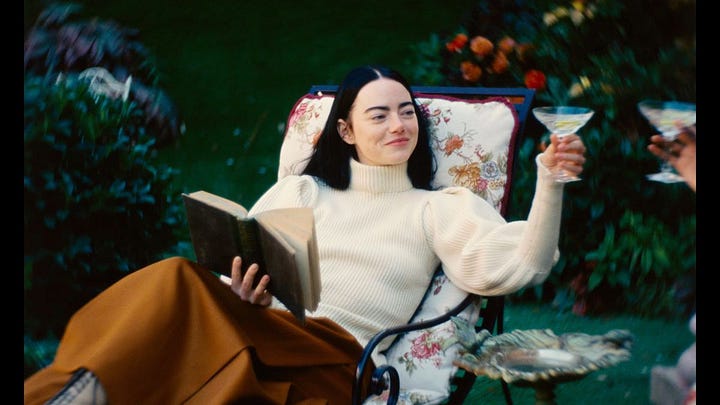

I like Easy A as much as the next person, but after Emma Stone won her second Best Actress Academy award this year, I got very curious about her range. Poor Things is a whimsical and strange story about a woman named Bella Baxter (Stone) who has been resurrected from the dead with the mind of an unborn infant. As Bella evolves, she becomes deeply curious about the world and has an unrelenting desire to explore the world. With permission from her creator God (short for Godwin and played by Willem Dafoe), Bella sets out on a hedonist adventure across Europe with a rakish lawyer, Duncan Wedderburn (Mark Ruffalo), who finds himself fighting an unfamiliar urge to possess Bella.
Edward Scissorhands is my favorite Tim Burton film, so it wasn’t hard for me to get into the weirdness of Poor Things, but the story itself was a shallow attempt to explore feminist themes (both the film and its source material were written by men). Bodily autonomy is expressed solely through sexuality, and there is A LOT of sex. There is never any mention of menstruation (not sexy enough, I’m sure), yet we witness Bella discover arousal via masturbating with an apple. There are a few moments where Bella is reading a book to get enlightened, but that is the most intellectual the film attempts to be. There was one particularly yt feminist scene I found a little irksome. In it, Bella discovers her privilege after Harry Astly (Jerrod Carmichael), a friend she met on a cruise, shows her how the other half (poor non-white people) live. Bella is distraught and traumatized by the realization that life isn’t rainbows and butterflies for everyone. If the cliché of inserting a Black friend into the narrative for the sole purpose of educating the protagonist wasn’t enough, Harry tells Bella he showed her poor people because he resented her privilege (*insert massive eye roll*). If I’m being honest, I think Emma won that Oscar for two primary reasons: 1. She was given an unusual role, the kind of role rarely afforded to women of color who are often boxed in by tropes or portrayals that are considered too culturally niche for mainstream audiences 2. She spent a good portion of this film taking back shots in a floor-length buss down.
All Dirt Roads Taste of Salt (2023)
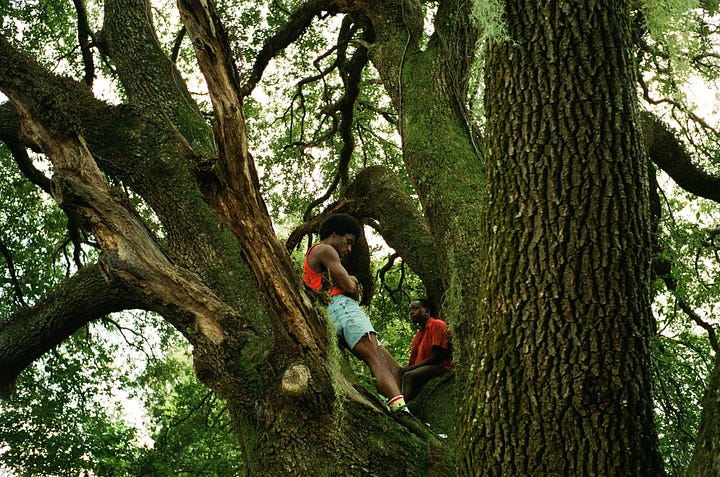

All Dirt Roads Taste of Salt is a 2023 Sundance selection that generated a lot of buzz last year, written and directed by poet and photographer Raven Jackson. This film is a meditation on the life of a southern Black woman through four stages, though I’m not sure what lies at the core of the story. The film employs a lot of close-up shots (many with hands in them) to convey emotion and connection. Shot duration is a device used throughout the film to make the viewer sit with the characters; for example, there is a five-minute hugging scene. Dialogue is sparse, and when used, it’s lyrical in tone. A notable scene is when the protagonist Mack and her teenage sweetheart, both dressed in red, two hearts on a tree, talk about swimming, which reads like a sonnet. This film calls the viewer to slow down, linger, and pay attention. It is also a film that requires the audience to fill in a lot of plot holes, which would be fine if we were watching a thriller or mystery, but in this instance, it left me confused. There is no exposition, and the sequence of scenes goes back and forth in time, like disconnected pieces of a memory. Still, many of the shot choices are stunning, and the performances are deeply textured, especially considering how little dialogue there is. It is poetry in visual form. Watching it from that lens is the best way to appreciate this film.
Films I started months ago and have finally gotten around to finishing
Days of Being Wild (1990)
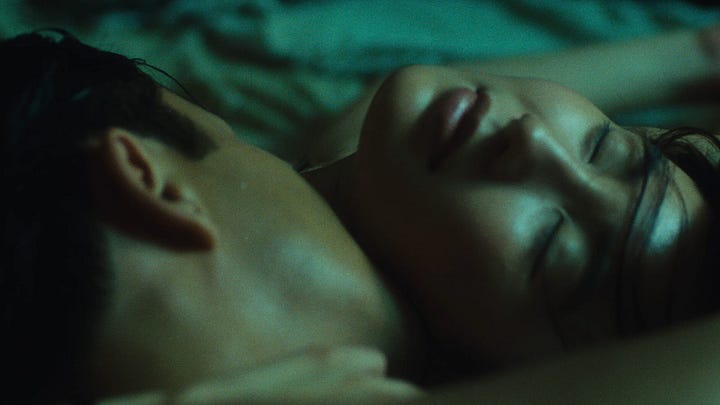

Wong Kar-wai had me in a chokehold last year after I watched In The Mood for Love for the first time. Days of Being Wild is considered the first film in an informal trilogy, In The Mood for Love being the second. Days of Being Wild follows Yuddy, who is the kind of man every cishet woman has had the displeasure of being emotionally terrorized by. The root of his apathy towards women comes from his mommy issues. Yuddy doesn’t know who his birth mother is and harbors resentment towards his adoptive mother, leading him down a destructive path to figure out who he descends from. Tonally, this film is very different from In The Mood for Love, but these films share palpable intimacy and a sense of longing, though the type of longing is very different. Days of Being Wild feels constricted and bleak in moments. Kar-wai and his cinematographer Christopher Doyle (who he also worked with on In The Mood For Love) utilize tightly framed shots and dark and cool tones to convey the complexities of a wounded man who desperately needs real human connection but sabotages it at every turn.
Before Sunrise (1995)
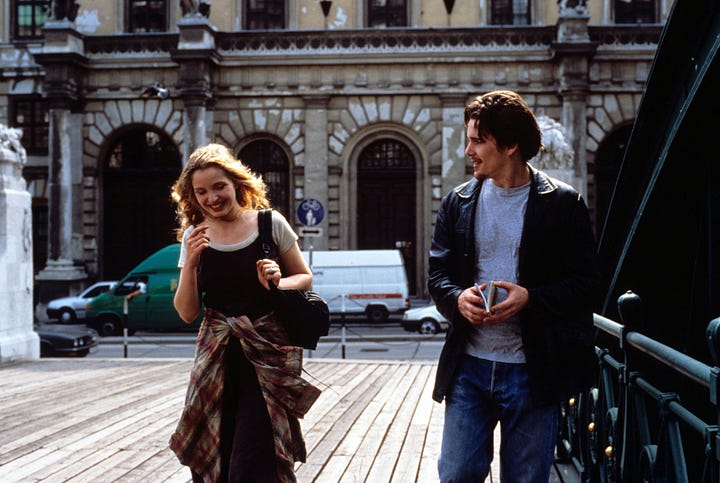
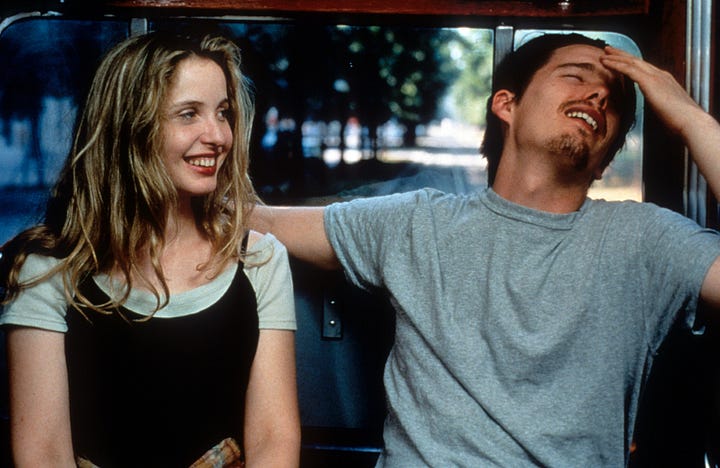
The first film in another romantic trilogy, I watched this as a reference for a rom-com I’m writing. Can a romance be a slow burn if you’ve only known someone for less than 24 hours? Writer-director Richard Linklater answers this question with a definitive yes in Before Sunrise. Jesse (Ethan Hawke) and Celine (Julie Delpy) meet on a Eurail train and strike up a conversation that goes well enough for them to decide to get off the train in Vienna and spend the entire day together. Jesse is an American recently jilted by his now ex-girlfriend during a surprise visit to Spain. Celine is a French student going home after visiting her grandma in Budapest. They’re just a couple of youngins, taking life as it comes, trying to figure themselves out and live in the moment. Given the circumstances, it’s unlikely these two will enter any serious commitment, but you root for them along the way. I love the dialogue in this film and how layered the characters are. Bring back non-formulaic romcoms!
Wham, bam, here comes Pam
Last month, Prime Video hosted a brunch honoring Pam Grier and celebrating the premiere of Them: The Scare. Since then, I’ve been in a Pam Grier rabbit hole. I’ve always been fascinated by her legacy. There were few bankable Black female actresses in the 1970s, and Pam was the first female action hero, yet the Blaxploitation genre she dominated has a complicated legacy. Many of the stories reinforced harmful and negative stereotypes about the Black community, but there was also a lot of groundbreaking movement for Black talent in front of and behind the screen. I’ve spoken before about The New Hollywood era and how raw and problematic it was, Blaxploitations films walk in that same tradition. In the midst of my Pam Grier deep dive, I also listened to TCM’s podcast The Plot Thickens which did an entire season on Pam Grier’s life and legacy. This bonus episode with Director and President of The Academy Museum, Jacqueline Smith, is a great entry point for understanding what Pam’s legacy means, not just in the realm of Blaxploitation but for the representation of Black women in media, in general. One hot take that had me shook me was the parallels between Pam’s legacy and Hattie McDaniel’s. Both women broke ground by playing roles that propped up stereotypes, and their legacies hold a “two things can be true” nature. For better or worse, Pam Grier paved the way for Black women actresses and entertainers who are self-empowered and fully own their sexuality. She is the original Hot Girl, if you ask me.
Friday Foster (1975)
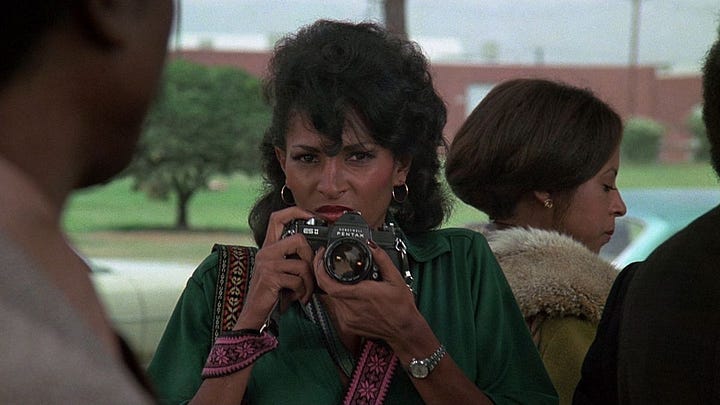
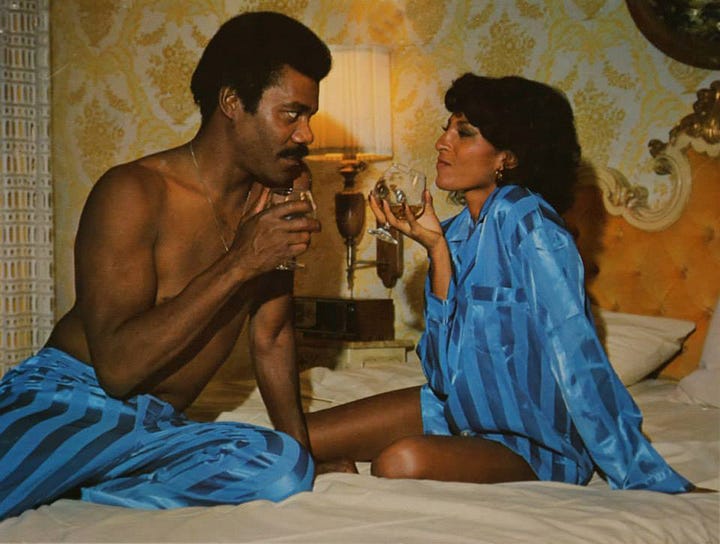
I am familiar with Pam Grier’s career-defining films Coffy and Foxy Brown, but I had never heard of Friday Foster, which was created towards the end of Blaxploitation’s reign. This film is a slight departure from Grier’s earlier work in which she plays a gun-wielding assassin. Adapted from a comic strip series, Friday Foster’s only weapon is her camera. When Friday is assigned to shoot a shootout by her boss at Glance Magazine, she becomes involved in uncovering a conspiracy to assassinate the wealthiest Black man in America. Pam is less raw in this role than Coffy or Foxy Brown. She doesn’t have an afro or Jive-turkey-mother-fucker dialogue. She isn’t out for blood. She’s just nosey, which makes the overall tone for this film much lighter and probably more palatable for folks who clutched their pearls at her earlier works. Eartha Kitt is also in this film, and I loved hearing about how Pam wanted to make sure Eartha was well taken care of on set, as she was someone who paved the way for her.
Jackie Brown (1997)

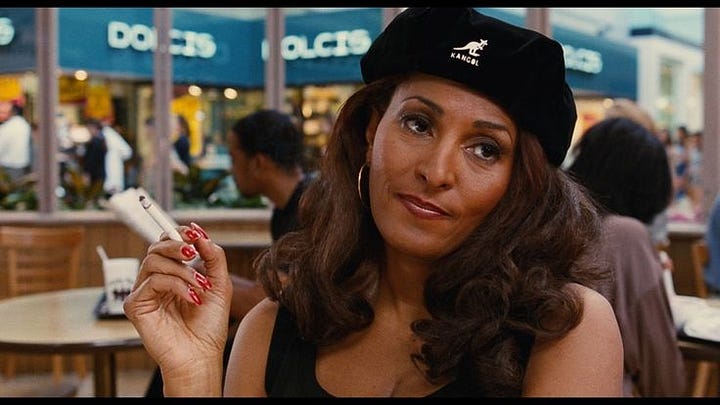
Quentin Tarantino is highly problematic, but if it’s one thing he got right, it was making Jackie Brown. Adapted from the novel Rum Punch, Tarantino re-imagined its blonde protagonist, Jackie Burke, into Jackie Brown, a nod to Foxy Brown. Jackie Brown is a flight attendant working for a budget airline for pennies, with minimal job prospects, who smuggles cash across the border for an arm’s dealer, Ordell (Samuel L. Jackson). This is an entertaining film on its own, but understanding Pam Grier’s legacy makes it much more enjoyable. It’s easy to see how the themes in the movie (aging, not having the same opportunities you used to, reclaiming power, etc.) related to where Pam Grier was during her career at that time. After being sequestered to supporting roles post-Blaxploitation, this was Pam’s first leading role in nearly 20 years— she was shocked that Tarantino considered her for the lead. I love the little easter eggs that pay homage to Pam— the opening and closing song “Across 110th Street” is by Bobby Womack, who Pam sang back up for before coming famous in her own right. When Jackie Brown rings Ordell’s apartment buzzer, you see “J.Hll and S. Haig” on the list, a nod to Jack Hill, who directed the films that made Pam Grier a star, and Sid Haig, who co-starred with her in The Big Doll House and it’s follow up The Big Bird Cage. This role is significant not only because it allowed Pam to have a leading role in a major film by a notable director for the first time in decades but also because it provided her the opportunity to play a character who was more dynamic than some of her earlier roles. This film showcases how important it is to pay homage and, more importantly, how important it is not to underestimate or underutilize actors who are 40+
Them: The Scare (Prime Video)

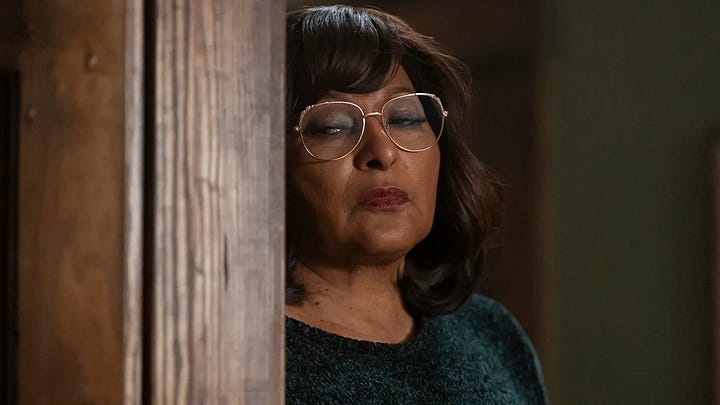
I’m only a couple of episodes in, and I’m sure I’ll have more thoughts later. I love seeing Pam play a mother and grandma because, in so many ways, she is MOTHER. Seeing actresses, especially Black ones, continue to thrive and book dynamic roles well into their 70s is a rarity we need to see more of.
Something I saw in theaters
Babes (2024)
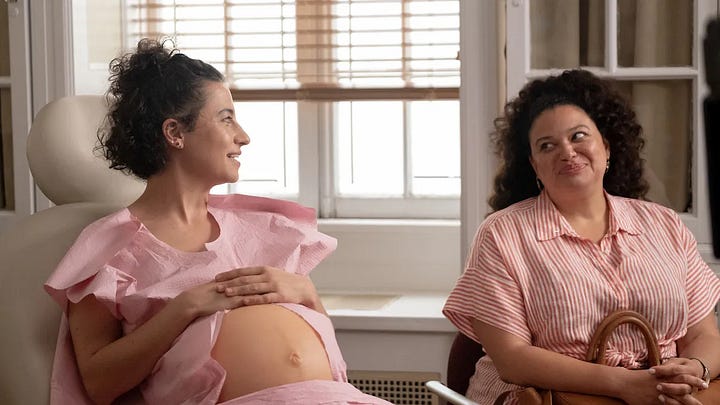

Ilana Glazer and Michelle Buteau as BFFs and Hasan Minhaj as a hot dad? Sign me up immediately! Babes follows two besties: one is a wife and mom with an established career (Buteau), and one who has an oopsie pregnancy and decides to raise the child alone (Glazer). Glazer and Buteau have a natural comedic chemistry, and I had quite a few laughs. We get a grounded and raw depiction of the challenges of motherhood and cultivating a village for your family in a world that prioritizes nuclear families. The biggest drawback of this film was the inconsistent pacing and some of the cliché directorial choices— a sentimental film score during sentimental moments, making pivotal decisions right before taking a flight, Shania Twain’s “Man! I Feel Like a Woman” played during a moment of self-empowerment, creates a tone that feels a bit generic in comparison to the themes, which subvert a lot of formulaic films of this genre. Still, if you love Ilana Glazer and Michelle Buteau, you will enjoy this film, even if not in full.
True crime shows that everybody is talking about
Tw: SA, domestic violence
Baby Reindeer (Netflix)

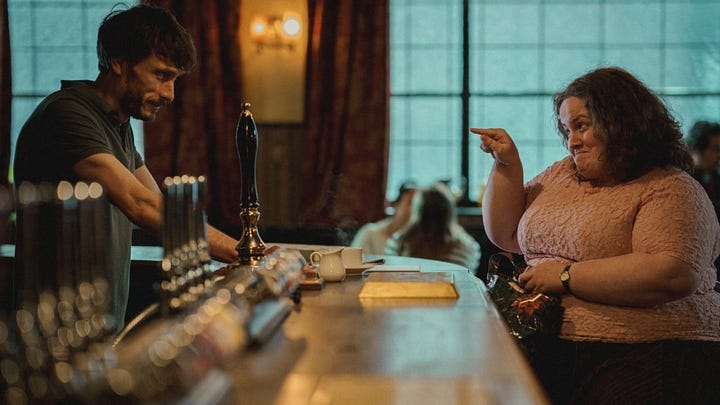
This show is being heralded as a masterpiece, but as mind-blowing as it is that these events happened in real life, I found its approach to showcasing SA unnecessarily graphic and extremely disturbing to watch at times. I appreciate that it explores themes of bisexuality, the complexity of being a male survivor of SA, and the extent to which we enable people to harm us. The masochism felt a bit meta, given the person who endured this also wrote, directed, and starred in this show (Richard Gadd)— though that is not necessarily unique. I May Destroy You walked so Baby Reindeer could run. I hope the creator of this show and the people who may have been triggered by it are protecting their hearts.
Under The Bridge (Hulu)
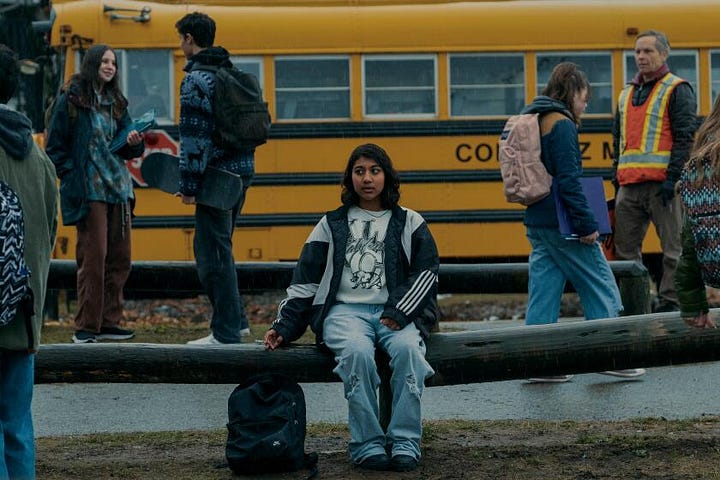
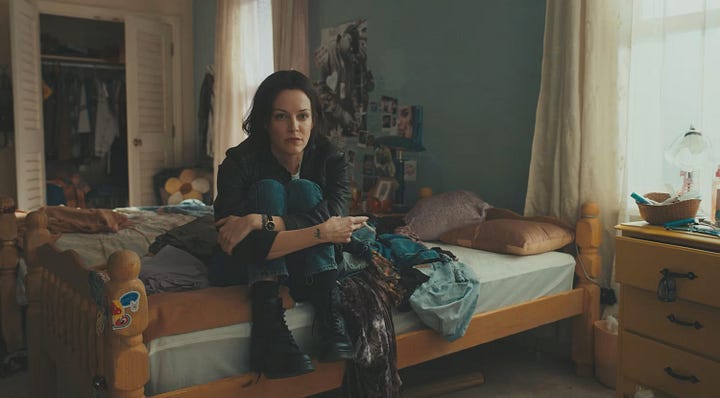
In the late 90s, a group of teens viciously beat 14-year-old Reena Virk underneath a bridge in Saanich, British Columbia. When Reena (played by Vritika Gupta) begins to stumble her way home on the bridge, she is killed, but who was responsible becomes a complex question as the series of events leading up to her death are uncovered. Reena was a kid from a loving but strict and religious family who somehow fell in with the wrong crowd of cosplay gangsters with fake ass accents (literally, Canadian teenagers who worshipped Biggie and thought they were Crips). Author Rebecca Godfrey (played by Riley Keough) returns home to Saanich from New York City and decides to write about the story, believing she is some 90s version of Truman Capote when he wrote In Cold Blood. Her tactics are predatory and cringe at times. She does not consider Reena’s family’s pain when she befriends one of her alleged killers. The performances in this series were incredible. Lily Gladstone, as an adopted child of a white cop, wrestling with being disconnected from her First Nations identity, Javon Walton gave so much humanity to Warren Glowatski, and Riley Keough thoroughly impressed me because the only other thing I’ve seen her in is Zola. Also, the soundtrack. I’m not sure who the music supervisor was on this project, but they did their big one with some classic 90s hip-hop B-sides.
A show everybody should be talking about
Ramy S3 (Hulu)
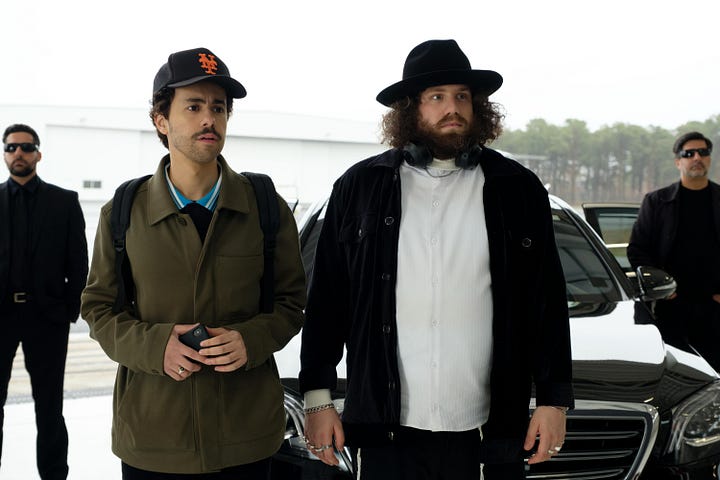
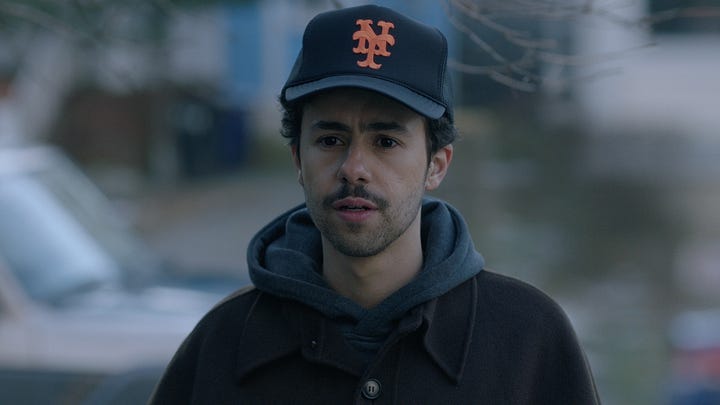
I was very pissed at Ramy at the end of season two, but watching him in Poor Things softened my anger, and I’m glad I waited to watch the series. The series arc in season three of Ramy follows him leveling up as a jeweler and going into business with Israelis, which proves to be unsafe for him and the Palestinian people in his life. If you are someone who needs an entry point to understand the dynamics of what Palestinians endure under Israel's apartheid, this season of Ramy is a good start without being too heavy. For example, he meets up with a girl on Tinder who lives in Palestine and has to go through checkpoints, which essentially look like cages, to see her, and it’s even more of a hassle to get back — did I mention that this is all happening on the same land? Obviously, things are much worse now, but I think this show does a great job of showing the intercultural anxieties about Israel’s settler colonialism. I also loved this season’s arc between Ramy’s parents as his mother gains more independence while his father has to reckon with the poor decision-making that has led him to be unemployed and failing as a provider. Ramy is currently taking a break before writing season 4, so you have plenty of time to get to this one.
A show that I worked on!
Living Room Comics (Nukhu)
Earlier this month, Nukhu premiered Living Room Comics, a non-scripted competition where comedians workshop jokes together and compete in front of a living room audience for a cash prize. I worked as an Assistant Director on this project, and it was really cool to see the process of how comedians write jokes. I have some personal favorite sets, but if you check them out, I’d love to know which comics made you cackle the most. You can watch all three episodes on Nukhu.
Tunes
Have you watched any of these movies or shows? Have you listened to any of these tunes? Got a recommendation for me? Drop it in the chat 👇🏾👇🏾👇🏾
Catch me on these digital streets.
Watch My Short Film “One Of The Guys” 🎥
Instagram 🤳🏾
TikTok ⏰
Website 👩🏾💻
Merch 🛍️
💋 ✌🏾
LaChelle





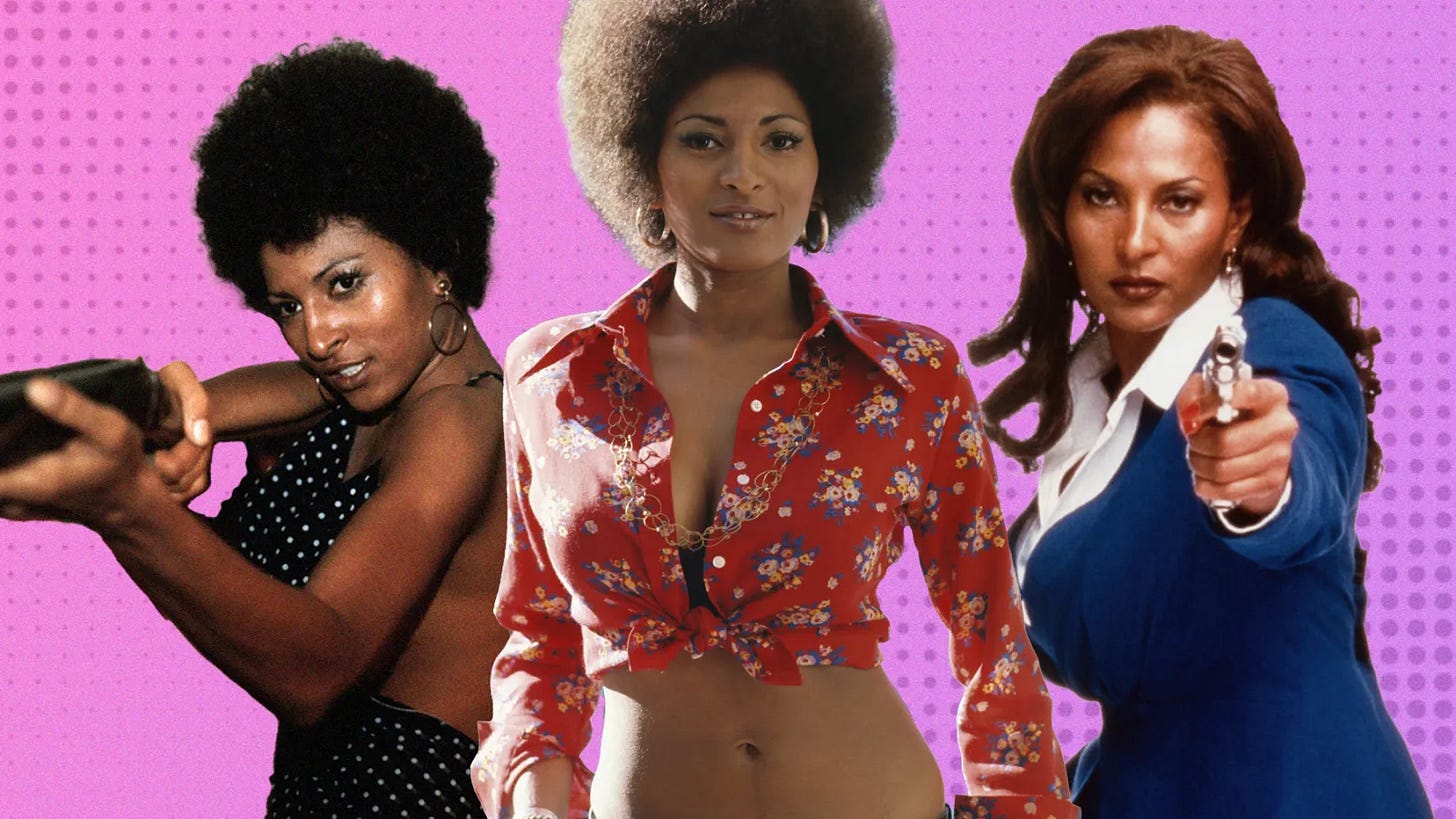
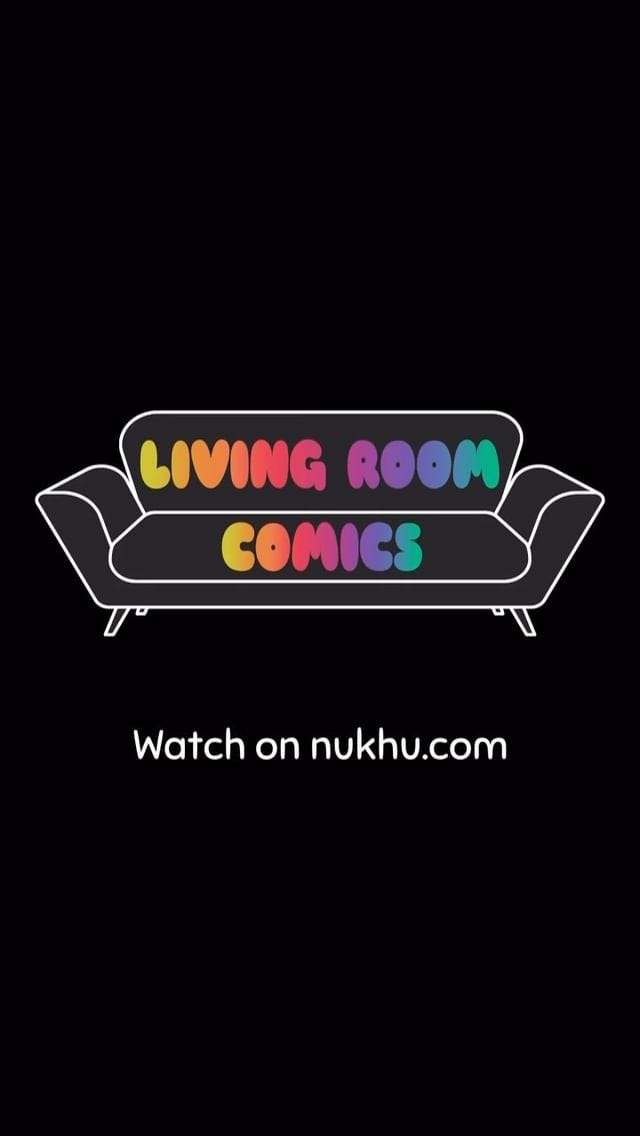

Under the Bridge was powerful. Having worked in a juvenile facility I am too familiar with the predatory behaviors of youth, especially when there is a scapegoat.
Ma'am! As ALWAYS, you came through on the watch + playlist! Looking forward to both lists! Stay AWESOME + keep sharing with us...+ I'm definitely adding Baby Reindeer to my list!